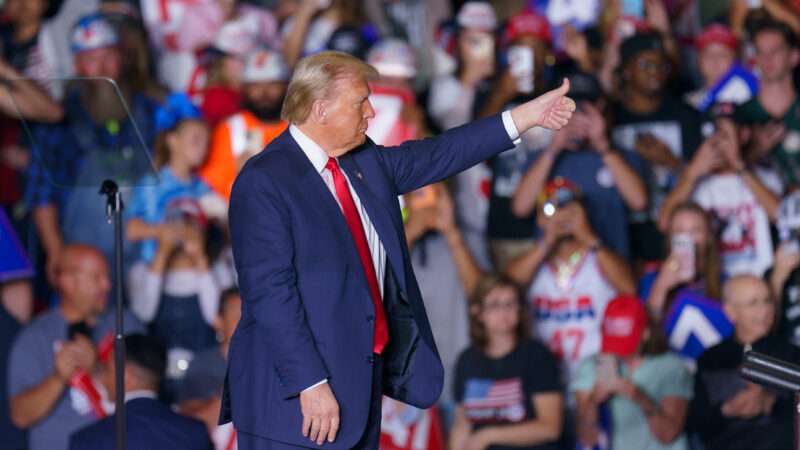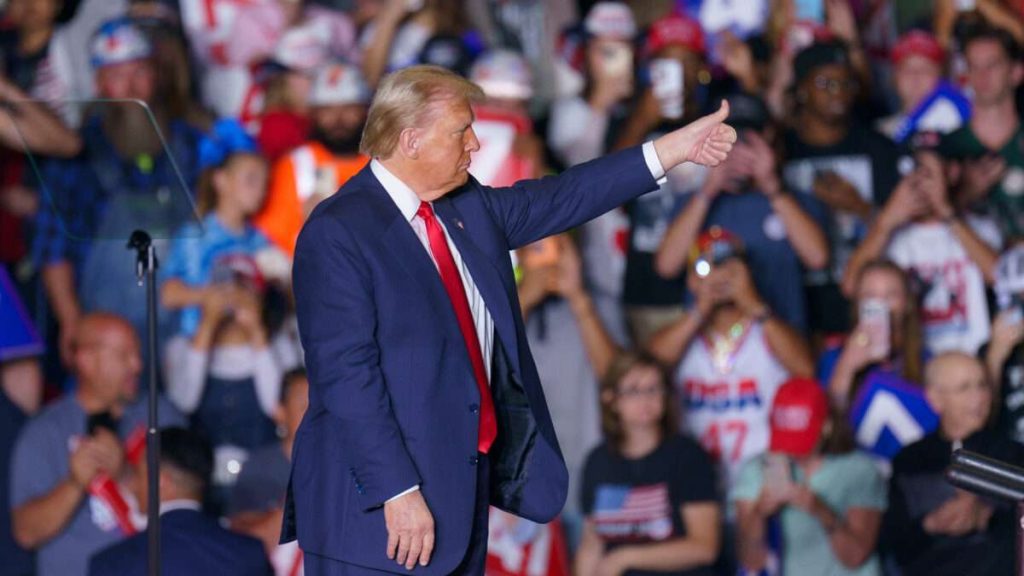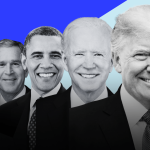
President-elect Donald Trump’s threat to slap huge new tariffs on all imports from Canada and Mexico will likely cause gas prices to rise in the United States.
That’s because Canada is America’s largest source of petroleum imports, according to the Department of Energy’s data. The U.S. has been importing about 4 million barrels of oil per day from Canada in recent months, thanks to the opening of a new pipeline. Mexico is also a major supplier to the U.S. market, accounting for about 10 percent of all crude oil imports in 2022.
If tariffs make those imports 25 percent more expensive (or if the flow of oil across the border slows or ceases in response to the new trade barriers Trump wants to erect), prices are likely to rise through the rest of the supply chain, including at the pump.
Trump’s threatened tariffs would mean “higher gasoline and energy costs to American consumers while threatening North American energy security,” Lisa Baiton, chief executive officer of the Canadian Association of Petroleum Producers, told Bloomberg.
“Applying tariffs on over 4 million barrels per day of crude from your leading supplier seems self-destructive,” Matt Smith, an analyst for Kpler, a data and analytics firm that tracks global trade, told Reuters. Trump is not planning to create an exemption in those tariffs for oil imports, the news service reports.
Higher gas prices don’t merely cause pain at the pump, of course. They make it incrementally more expensive to move goods around the U.S. via train, truck, and plane—which will only compound the other price increases that could result from higher tariffs or a continent-wide trade war.
Defenders of Trump’s tariff plans might point out that the U.S. is a net exporter of gas and oil, and they might point to incoming Treasury Secretary Scott Bessent’s plan to ramp up oil production even higher. Doesn’t that mean the U.S. could use domestic energy supplies to offset whatever imports might be lost (or made more expensive) due to the tariffs?
That reallocation of resources will take time, however. Even if Bessent’s plan to increase oil production works out—and there are reasons to think it may not—it won’t be ready to offset tariffs that Trump is threatening to impose on his first day in office.
Meanwhile, cutting off exports to feed domestic demand isn’t going to happen quickly, either. Oil exporting companies might have contracts they must honor or other reasons to continue operating abroad. At the very least, it’s wildly hubristic for any presidential administration to believe it can make private businesses reorganize their global supply chains at the president’s whims.
And if making all those changes was as simple as flipping a switch, American gas and oil companies would probably greet the tariff threat with a shrug.
Instead, they are saying things like “across-the-board trade policies that could inflate the cost of imports, reduce accessible supplies of oil feedstocks and products, or provoke retaliatory tariffs have potential to impact consumers and undercut our advantage as the world’s leading maker of liquid fuels.” That’s what a spokesman for the American Fuel and Petrochemical Manufacturers, a trade group representing oil refineries, told Reuters.
We should trust those private companies to better understand this policy than anyone in government—least of all Trump, who has never shown much of a grasp of the unintended consequences of his tariff plans.
I like to point out that, despite what many voters seem to think, there is no dial on the president’s desk to control the unemployment rate or the price of gasoline. Gas prices are determined by a huge number of factors, of which government policy is just one (albeit significant) part.
Nevertheless, Trump seems determined to find that dial and crank it up.
The post Trump’s New Tariffs Could Create Higher Gas Prices appeared first on Reason.com.







